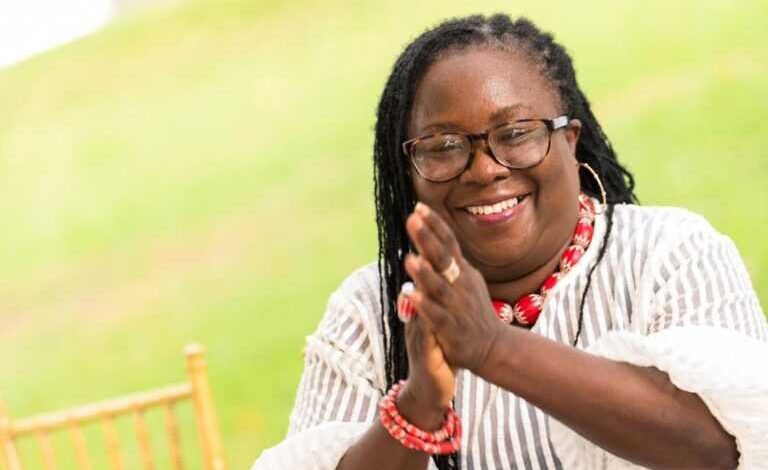
Audrey Gadzekpo expressed deep disappointment following the passage of the anti-LGBTQ bill, and fervently hopes for its repeal by a future government.
Board Chair of the Ghana Centre for Democratic Development (CDD Ghana), Professor Audrey Gadzekpo is optimistic that a future government will make significant strides in fostering inclusivity and equality by repealing the controversial Promotion of Human Sexual Rights and Ghanaian Family Values Bill, commonly referred to as the anti-gay bill, should it receive approval from President Nana Addo Dankwa Akufo-Addo.
She conveyed her dismay at the bill’s approval by Parliament, emphasizing her concerns over its implications during a press conference in Accra on Wednesday, likening it to the reinstatement of the criminal libel law.
On Wednesday, February 28, Ghana’s Parliament resolutely passed the anti-LGBTQI bill after navigating through each of the three crucial reading stages.
The Promotion of Human Sexual Rights and Ghanaian Family Values Bill underwent its definitive third reading on the same day, ultimately culminating in its passage.
TV3’s Parliamentary correspondent, Komla Klutse, succinctly reported, “3rd reading of the anti-lgbtq bill passed by parliament, the bill has been passed” – solidifying the bill’s approval by the legislative body.
Ningo-Prampram Lawmaker Samuel Nartey George expressed gratitude towards Osei Kyei-Mensah-Bonsu, emphasizing his pivotal role in the successful passing of the bill.
Acknowledging the unity within the house, Nartey George highlighted the overwhelming support from a majority of members across both sides of the political divide for the legislation.
Before the bill was passed, a human rights coalition, which included CDD Ghana, “the Big 18,” and various other organizations, urged President Akufo-Addo to withhold his assent to the bill in its existing form.
During a press conference in Accra on Tuesday, February 27, 2024, Prof. Audrey Gadzekpo, a member of the group, highlighted that the Bill would violate the fundamental human rights of many individuals, including the media, as protected by the 1992 Constitution.
Professor Gadzekpo remarked that the group had noted the rejection of proposals to replace imprisonment with community service, as suggested by Member of Parliament for Effutu, Mr. Afenyo-Markin. Despite the opposition from the majority of the house resulting in the removal of the proposed amendments, Professor Gadzekpo expressed appreciation for Mr. Afenyo-Markin’s efforts to reform the justice system.
On Wednesday, February 21, the former Deputy Majority Leader, Alexander Afenyo-Markin, made the decision to withdraw his proposed amendments to the anti-LGBTIQ+ bill. This move cleared the path for the Bill to proceed for further consideration and potential passage in the near future.
However, the coalition of civil society organizations and interest groups remained steadfast in their stance that the Bill must undergo further scrutiny and revision.
“Ghana is a vibrant, secular nation boasting a rich tapestry of over 50 ethnic groups, each with its own unique cultural practices and beliefs. Professor Gadzekpo asserts that any endeavor to impose a singular cultural value system on Ghana would diminish the diverse and beautiful mosaic that defines us as a truly distinctive people.”
She further elaborated that “It is precisely for this reason that the constitution unequivocally eradicates all practices and laws that pose harm to individuals’ health and overall welfare, even if justified under the guise of culture and tradition.
The group asserts that “this poses a considerable constraint on journalists, bloggers, influencers, and other social media users who create or share content, particularly those involved in the sphere of human rights advocacy.







